Doug McClain learned the ins and outs of financial fraud while working for Robert Colgin Wilson, who—far more than “The Wolf of Wall Street”—exemplified the role of American organized crime in financial fraud during the last quarter of the 20th Century.
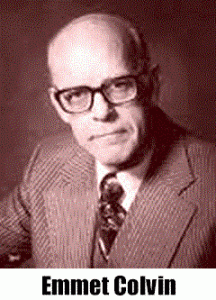 Wilson was no fly by night. His roots ran deep. When he was convicted of securities fraud in the mid-70’s, his lawyer during the trial and appeal was the same Dallas attorney, Emmett Colvin, who a decade earlier represented Jack Ruby during his trial for the murder of Lee Harvey Oswald.
Wilson was no fly by night. His roots ran deep. When he was convicted of securities fraud in the mid-70’s, his lawyer during the trial and appeal was the same Dallas attorney, Emmett Colvin, who a decade earlier represented Jack Ruby during his trial for the murder of Lee Harvey Oswald.
When the Tampa office of Homeland Security Investigations (HSI) partnered with McClain and other members of organized crime in a still-unexplained drug trafficking operation that brought tons of cocaine into the U.S. between 2003 and 2008, they were getting a known quantity.
When that effort went awry, Doug McClain’s last big play occurred with the hurried stripping out of a coal mining company in the coal fields of Kentucky—between July 2010, when he and his crew became the owners of eight separate coal mines—and May 2011, when the federal government stepped in and call a halt to the thieving.
Collusion in Tampa
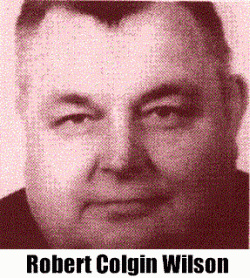 There has always been a tendency in the U.S. to distinguish organized crime from white-collar and financial crimes and fraud. But that distinction hasn’t existed since the Mob invaded American brokerages during the heyday of Stratton Oakmont.
There has always been a tendency in the U.S. to distinguish organized crime from white-collar and financial crimes and fraud. But that distinction hasn’t existed since the Mob invaded American brokerages during the heyday of Stratton Oakmont.
Doug McClain committed his numerous financial crimes as a henchman of Robert Colgin Wilson, the premier financial criminal of his day. That his name is not well-known today is proof of the continuing power of organized crime in America.
The collusion in Tampa between elements of the U.S. Government and organized crime was first exposed by New York Post financial writer Chris Byron, in a June 1, 2004 report that may have cost him his job.
“It didn’t get much attention in the press, but in a Tampa, Fla., courtroom last week, the Mafia’s much-chronicled rampage through the penny-stock market a decade ago officially came to an end,” he reported, “with sentences finally handed down for the four top remaining insiders in the case.”
Getting “Justified” in Kentucky
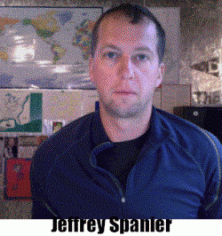 Over the past two years lieutenants in McClain’s organization have slowly been rolled up by local, state, and federal law enforcement. Given the recent attrition in his criminal organization, the effort in Kentucky constituted a doomed last stand under the watchful eye of the FBI.
Over the past two years lieutenants in McClain’s organization have slowly been rolled up by local, state, and federal law enforcement. Given the recent attrition in his criminal organization, the effort in Kentucky constituted a doomed last stand under the watchful eye of the FBI.
Four months ago Doug McClain’s son and partner— Doug McClain Jr., or Little Dougie, as they called him in Kentucky—was sentenced to 15 years in Federal prison, and ordered to pay a whopping $81 million fine for his role in a $100 million stock scheme scam.
Jeffrey Spanier was also convicted by a federal jury last December on the same charges. And one of McClain’s closest long-time partners, James Miceli, committed suicide before he was to go on trial.
 Last week I reported that Miceli got rich as a Chicago-area real estate developer whose favorite trick was taking people’s money to build custom-built homes, and then doing nothing. In 1999, it caught up to him, and he was convicted in Illinois of felony money laundering, forgery, perjury and theft of over $100,000.
Last week I reported that Miceli got rich as a Chicago-area real estate developer whose favorite trick was taking people’s money to build custom-built homes, and then doing nothing. In 1999, it caught up to him, and he was convicted in Illinois of felony money laundering, forgery, perjury and theft of over $100,000.
A dozen years later he got careless again. DEA agents learned a UPS delivery was filled with $658,000 in cash packed inside vacuum-sealed bags. They of course got curious, the way the DEA does around loose money. The package was addressed to an unknown person, from a return address that didn’t exist. The owner of the property in Charlotte North Carolina to which it was delivered disclaimed any knowledge of it, but officers smugly noted that he was known to be involved in the sale and distribution of marijuana.
 DEA agents could almost taste the free money, until, incredibly, a man named Robert Douglas Gibson stepped forward to claim it. Through an accident of fate, Gibson was, just then, incarcerated an an inmate at California State Prison at Salinas Valley.
DEA agents could almost taste the free money, until, incredibly, a man named Robert Douglas Gibson stepped forward to claim it. Through an accident of fate, Gibson was, just then, incarcerated an an inmate at California State Prison at Salinas Valley.
Asked to prove the money was his, he cited an account he had at Argyll Equities that was being held for him by company CEO James T Miceli. Since there was no chance that inmate Gibson would end up counting cash in his cell, the logical explanation is that Argyll’s money laundering expertise was so well-known it had penetrated the consciousness of otherwise clueless inmates in Illinois state prison.
“From Christian cult leader to capo du jour”
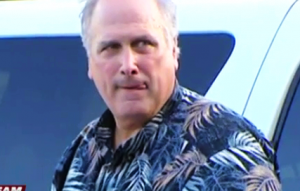 Last man standing is the crime family capo himself, Douglas Aaron McClain Sr., currently awaiting trial on charges of financial abuse against the elderly, for conning out of his life’s savings a paraplegic man in San Antonio while posing as a Christian minister.
Last man standing is the crime family capo himself, Douglas Aaron McClain Sr., currently awaiting trial on charges of financial abuse against the elderly, for conning out of his life’s savings a paraplegic man in San Antonio while posing as a Christian minister.
McClain told the man he needed a temporary loan to cover closing costs involved in the sale of eight coal mines in Kentucky he purported to own. Instead, investigators determined the mines were already in bankruptcy, and had been placed into federal receivership, and that McClain had used the money for car payments and household expenses.
 The senior McClain, 62, is best known for his role providing a DC-9—which made seven round trips to Colombia and back, according to Mexican authorities, before being caught with 5.5 tons of cocaine—to a still-unexplained drug trafficking operation run by the Tampa office of the Immigration and Customs’ Enforcement’s Homeland Security Investigations (ICE-HSI).
The senior McClain, 62, is best known for his role providing a DC-9—which made seven round trips to Colombia and back, according to Mexican authorities, before being caught with 5.5 tons of cocaine—to a still-unexplained drug trafficking operation run by the Tampa office of the Immigration and Customs’ Enforcement’s Homeland Security Investigations (ICE-HSI).
McClain’s colorful curriculum vitae also included, as stated, a stint as a leader in an abusive Christian cult. He was also a manager for a company posing as business consultants while bilking small business owners of tens of thousands of dollars apiece called International Profit Associates, whose top three executives were all convicted felons.
He also used sophisticated stock and Treasury bond schemes to defraud a variety of organizations ranging from a software firm to a Christian foundation in New York committed to raising money for charity.
“He wanted to meet U.S. Marshal Raylen’s girl, Winona?”
So the question is, why did McClain choose, in 2010, the hardscrabble coal fields of Kentucky to run his latest (and perhaps last) financial scam?
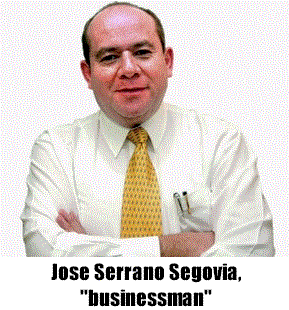 It seems an odd choice for a man who has proven himself eminently comfortable running scams on people suffering from fatal disease, or laundering money for Mexican drug trafficker Jose Serrano Segovia, whose status as one of Mexico’s wealthiest men does little to solidify the impression he attempts to convey of himself as an “industrialist.” In APRIL 1998 The Wall Street Journal revealed that the FBI was investigating Jose Serrano Segovia for drug trafficking and money laundering, after a huge shipment of cocaine from Colombia was found on one of his cargo vessels.
It seems an odd choice for a man who has proven himself eminently comfortable running scams on people suffering from fatal disease, or laundering money for Mexican drug trafficker Jose Serrano Segovia, whose status as one of Mexico’s wealthiest men does little to solidify the impression he attempts to convey of himself as an “industrialist.” In APRIL 1998 The Wall Street Journal revealed that the FBI was investigating Jose Serrano Segovia for drug trafficking and money laundering, after a huge shipment of cocaine from Colombia was found on one of his cargo vessels.
The next year, Serrano hired a lobbying firm to block a bill in Congress which aimed to impose sanctions on companies linked to drug trafficking. And even though a top staffer to Republican Senator Richard Shelby resigned in protest, the effort was successful.
Perhaps it is the heat of scrutiny aroused by his operational support of the Tampa drug operation which led him so far afield. There seemed nothing that hinted of coal dust.
But I was missing something which, when I found it, became a Rosetta Stone to decode a series of clues that led directly to a rich vein of elite deviance that—for much of two decades—has been backing the play of Douglas McClain.
As above, so below.
![]() Meanwhile, it is worth mentioning that events in the drug world in Mexico at the same time appear to be mimicking those in the U. S.
Meanwhile, it is worth mentioning that events in the drug world in Mexico at the same time appear to be mimicking those in the U. S.
The mining industry in Mexico made headlines last week when Mexican officials revealed that iron ore mining has surpassed drug trafficking as the biggest moneymaker for at least one major Mexican drug cartel.
A Mexican drug cartel, authorities there said, now controls the entire iron ore production chain in the state of Michoacán, from extraction to trucking to bribing customs authorities at the country’s second largest port.
 “It’s—La Familia, now the Knights Templar— a criminal organization like the mafia,” said Antonio Mazzitelli, the Mexico and Central America representative to the U.N. Office on Drugs and Crime.
“It’s—La Familia, now the Knights Templar— a criminal organization like the mafia,” said Antonio Mazzitelli, the Mexico and Central America representative to the U.N. Office on Drugs and Crime.
“Iron ore is their principal source of income,” a Mexican federal official tasked with restoring the rule of law in Michoacán told The Associated Press.
This should come as no surprise. Drug trafficking, according to the UN, typically makes up 40% of the overall revenue of organized crime, by any reckoning a huge amount of cash. But transnational organized crime—in Mexico, the U.S., and around the world—never relies on one source of income.
Why they call it ‘organized’ crime.
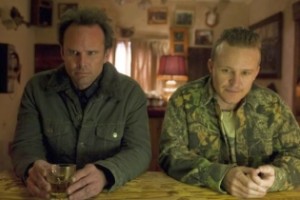 McClain’s last big play was called M3 Energy Resources LLC. It had recently changed its name from 3M Energy Resources, a simple transposition which presumably threw at least some officials off the scent of easy money.
McClain’s last big play was called M3 Energy Resources LLC. It had recently changed its name from 3M Energy Resources, a simple transposition which presumably threw at least some officials off the scent of easy money.
It played out like a scene from the hit TV series “Justified,” which is set in Kentucky’s coal country. A strip mining company in Kentucky’s coal country was “stripped out” by carpetbaggers from La Jolla, California like it was a New Jersey restaurant in The Soprano’s.
M3 managed deep and strip mining operations in four different counties in Kentucky at eight separate mines. Eight months later, more than one hundred miners had lost their livelihood.
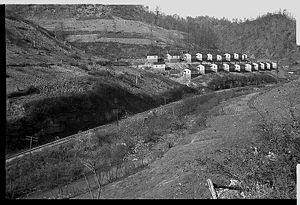 “You can go in and bankrupt that little ‘ol company, take most of what they got, then walk away, and you don’t have to reclaim none of the property,” said a former mine operator with deep political connections in the state capital of Lexington.
“You can go in and bankrupt that little ‘ol company, take most of what they got, then walk away, and you don’t have to reclaim none of the property,” said a former mine operator with deep political connections in the state capital of Lexington.
“Politicians like Mitch McConnell have taken millions in payoffs from these guys. They’re liable for nothing. Plus they got all that coal out of the ground.”
“Rollin’ on the union’s money. Where to. Did you say Vegas?”
M3 Energy Resources was legally obligated to clean up and reclaim mining sites that spread like toxic sores across the landscape of Central Kentucky. But even during bankruptcy proceedings, no one was holding their breath that they would be made to fund a reclamation project before leaving town.
 “You know at first I thought they were pretty legit, because they paid us,” one coal industry supplier told us, “but pretty soon it became clear they had just been baiting the hook. We began to see that these guys are a little shady.”
“You know at first I thought they were pretty legit, because they paid us,” one coal industry supplier told us, “but pretty soon it became clear they had just been baiting the hook. We began to see that these guys are a little shady.”
In a phone interview, the supplier, listed in bankruptcy documents as one of the 20 creditors holding the largest unsecured claims, said, “I heard that they were taking money out of their employee’s checks for health insurance, but they didn’t have no health insurance.”
“I also heard coal was secretly being moved out of the facility late at night, with no records kept. The next thing I knew they was gone, walked out on big debts. They owed— just to our little service company, over $120,000.”
“They strip the assets, they get a lot of stuff in on credit. They cheat the unions and miners, who pay into the union for 4-5 years, you get to roll on union money.”
“What could Eston have been thinking?”
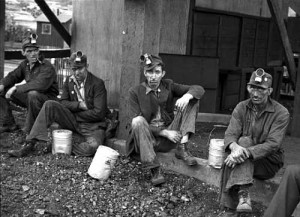 A message board in the affected area was filled with speculation about what “The boys from California” had been up to. “Anyone with a few brain cells can figure out that someone from California wearing a polo shirt, khaki shorts, and sandals to a coal mine ain’t got a clue about how to run a coal company. That’s not why they were there.”
A message board in the affected area was filled with speculation about what “The boys from California” had been up to. “Anyone with a few brain cells can figure out that someone from California wearing a polo shirt, khaki shorts, and sandals to a coal mine ain’t got a clue about how to run a coal company. That’s not why they were there.”
“When was the last time you saw Jim Miceli, or Doug, or John, or any of the management got there hands dirty, much less actually work on something. Mark my words, within 6 months those guys will be back in California.”
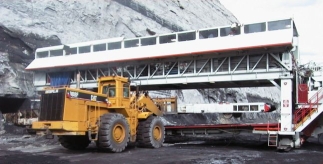 “They think everyone in Kentucky is too ignorant to figure out how they are getting screwed over by M3,” read one plaintive note. “They basically dismantled the plant, they ran the highwall miners into the ground because they won’t pay for parts. Volvo came and took the computers out of the equipment because they haven’t been paid.”
“They think everyone in Kentucky is too ignorant to figure out how they are getting screwed over by M3,” read one plaintive note. “They basically dismantled the plant, they ran the highwall miners into the ground because they won’t pay for parts. Volvo came and took the computers out of the equipment because they haven’t been paid.”
“I know I wouldn’t want some dumb dick wearing sandals on a strip job to tell me how to run coal. If you did, you’re as ignorant as Jim Miceli, Doug McClain, and Little Doug (McClain) seemed to think you were.”
Even if you weren’t following elite-level scoundrels and scamsters, the community message boards offered an interesting look at small- town life in Kentucky.
“No Beach Creek swimming pool. Folks it sure is hot,” headlined one.
There were sentiments delivered straight from the shoulder that may have sounded strange to scamsters used to the more decorous indiscretions of La Jolla.
“Sherry Mandrell Had Sex With Her Stepson,” headlined one.
“Eston quit givin it to me,” read another.
I felt compelled to read the rest of the message. but it never gave a reason for what put Eston off his feed. Like so much of American life these days, it was a mystery.
END OF PART I. SEE PART II HERE.


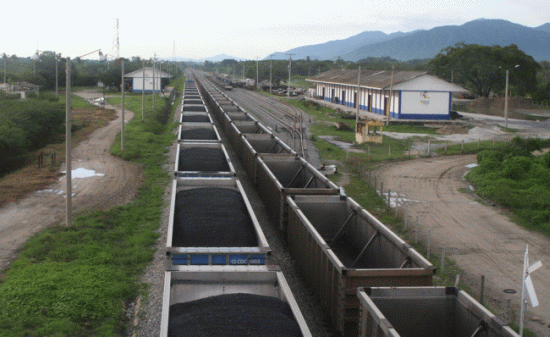
Spooks and Saudis and Florida and Raytheon – This is an old topic, but there were no comment links for the original story. . There was a company in Naples with close ties to both Raytheon and Hughes during the late 80’s. Defense Research Inc. Had a Learjet owned by Lenoir Zaiser that was to my knowledge the only one in town. It was the golden age of Ferrari’s, and Classy Sailboats which the DEA enjoyed ransacking during dinner cruises. This was the only military subcontracting firm in a town and had no other competition. If Raytheon and Hughes had a jet in Naples, DRI was the connection. As a kid I was dragged around to corporate offices of both companies. I really don’t know what happened to that Lear between 1993 an 2001 but have no reason to believe it didn’t stay in the network. DRI was was sold to a German Company MBB but continued to function outside my visibility after that. The Lear was actually a hot topic because it was far Louder and Flashier than anything else around. It took Bill Joel and Christie Brinkly to the Miami Superbowl and blew and engine over Chicago but my pops walked away from that…
[…] at Mad Cow Productions on April 1, 2014 by Daniel […]
[…] Via MC […]
[…] Continue reading →. http://www.madcowprod.com/2014/04/01/black-ice-organized-crime/#more-5881 […]